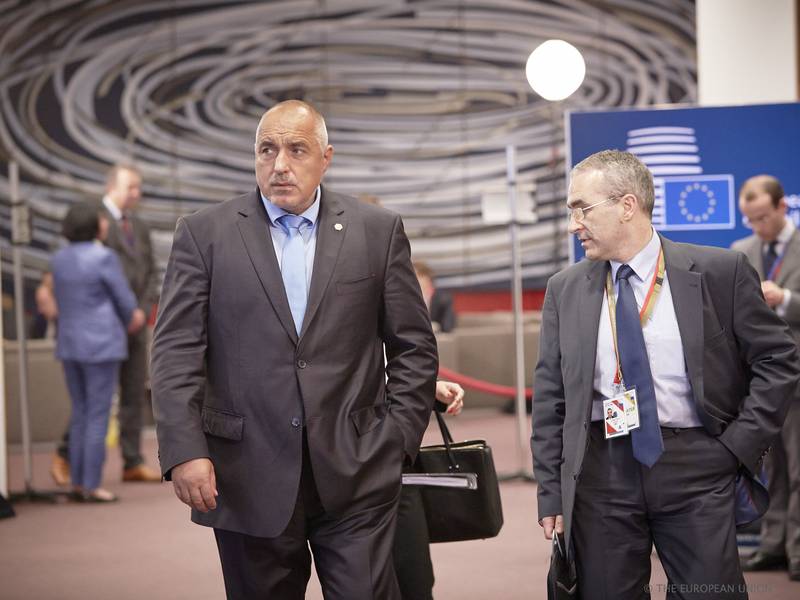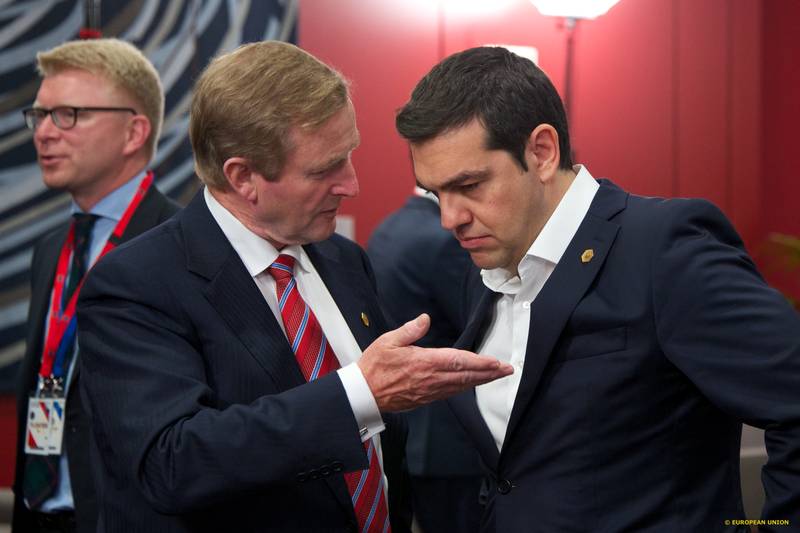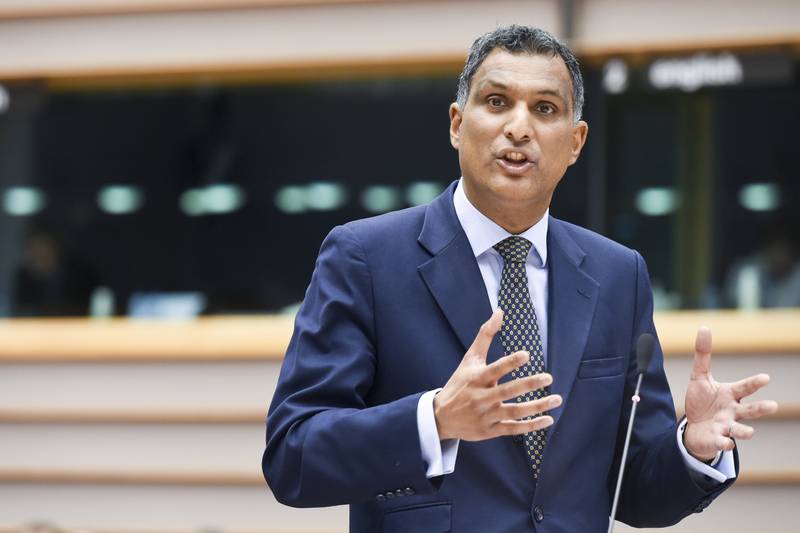The Fifth President
Adelina Marini, June 18, 2015
 Just one week is left until the EU leaders’ summit this June when the second report of the four presidents is expected, although with much less anticipation. We are talking about the leaders of the Commission, ECB, European Council and the Eurogroup, who have been tasked by the leaders of the member states to present a new, or rather an updated vision about the deepening of the integration in the Eurozone. They were unobtrusively joined by the fifth president – the leader of the European Parliament, who participates in the drafting with the recommendation report, prepared by the French socialist Pervenche Berès. Her report was put to a vote by the EP’s Economic Committee on June 16 and was approved by 33 votes to 24 with 1 abstention. As euinside reported, moods in the EU and the Eurozone are quite different from the times of the first report, which dictates abstaining from opening-up the founding treaties of the Union for changes.
Just one week is left until the EU leaders’ summit this June when the second report of the four presidents is expected, although with much less anticipation. We are talking about the leaders of the Commission, ECB, European Council and the Eurogroup, who have been tasked by the leaders of the member states to present a new, or rather an updated vision about the deepening of the integration in the Eurozone. They were unobtrusively joined by the fifth president – the leader of the European Parliament, who participates in the drafting with the recommendation report, prepared by the French socialist Pervenche Berès. Her report was put to a vote by the EP’s Economic Committee on June 16 and was approved by 33 votes to 24 with 1 abstention. As euinside reported, moods in the EU and the Eurozone are quite different from the times of the first report, which dictates abstaining from opening-up the founding treaties of the Union for changes.
This shows both from the ideas that member countries sent to Brussels and from Mrs Berès’s report. Italy presented one of the most comprehensive contributions to date, including propositions on how to avoid changes in the Treaty. According to the Italian Contribution it is well worth considering strengthening bonds among Eurozone member states through enhanced cooperation. This procedure is provided for in the Treaty of Lisbon and allows a group of states (a minimum of nine) to deepen integration among themselves. Italy acknowledges that changes in treaties will be mandatory in the long run but the current texts allow for the creation of an insurance fund in the Eurozone for example, or a Eurozone budget.
In the first draft of Pervenche Berès’s report at least, the European Parliament is emphatically against such a move for it leaves the EP in the back seat. According to the Treaty of the EU the EP could just be informed about what is happening between the countries engaged in enhanced cooperation, although Parliament’s permission is required for opening the procedure. Pervenche Berès’s report also reminds that intergovernmental treaties lack democratic accountability on a European level, and they have become more and more frequent lately.
While member countries have been relatively cautious in their suggestions on the development of the Economic and Monetary Union (EMU) Parliament has more specific proposals, although Berès’s report provides more questions than answers. Some Eurozone countries, Italy included, think that in the long run a common Eurozone budget should be established, self-financed by new taxes, like a carbon tax, digital tax, tax on financial transactions etc. Member countries’ larger focus coincides with that of the Commission – using what has not yet been done, namely deepening the single market and completing several key structural reforms.
Italy is of the opinion, that reforms are needed in the markets for products, energy, transport, services, public services (public administration included), civil law enforcement, labour market, intellectual property and digital economy. Berès’s report, which will be taken in consideration in the drafting of the four presidents’ report, has several explicit suggestions. One of the key ones is making mandatory the specific recommendation that the EC sends to the Eurozone each year through the European Semester. There are three recommendations to the Eurozone this year: peer pressure (among member countries) for carrying out structural reforms that enhance correction of huge internal and external debts; coordination of fiscal policies; completing the ratification of the intergovernmental treaty for the creation of a single resolution mechanism for failing banks.
The “Berès report” insists the permanent rescue mechanism of the EU (the European Stability Mechanism) that was created as an intergovernmental agreement be integrated in the community law framework, so that it is officially accountable to Parliament. Creating a new law framework for future rescue programmes, guaranteeing all decisions are made with due diligence by the EC with full Parliament participation is another of the report’s demands. While member states agree as a whole that a permanent Eurogroup president should be instituted Mrs Berès thinks it would be better if the Commissioner for Economic Affairs (currently French socialist Pierre Moscovici) assumes this function as well. A step in this direction was taken by the previous leader of the EC, José Manuel Barroso, who extended the then Economic Commissioner Olli Rehn’s mandate in that direction.
Juncker’s Commission has a full-fledged economic team, in which Pierre Moscovici is Commissioner for Economic Affairs and Vice-president Valdis Dombrovskis is responsible for the Eurozone. The French MEP’s report contains several other ideas, one of which is the establishment of a European framework with the participation of the national fiscal councils, whose main function will be monitoring national governments’ fiscal policy and whether it complies with fiscal compact provisions. The report clearly shows that the European Parliament also supports the creation of a Eurozone budget. The report states that “a ‘genuine Economic and Monetary Union’ (EMU) cannot simply be limited to a system of rules but also requires an increased euro area fiscal capacity”.
The text of the EP report is expected to be put to vote in the plenary in Brussels on June 24 – exactly one day before the start of the EU leaders’ summit. It was strongly criticised by the group of Liberals in the EP. What will the final draft of the report look like is yet to be seen. One of the presidents – ECB boss Mario Draghi – refused to reveal any details during his hearing in the EP Economic Committee this week, although he hinted that we could expect something as big as the banking union that was established with the first report. The “Berès report” calls for similar ambitions. “[EP] Recalls that the banking union was the result of the political will to avoid a financial crisis and that the same will is needed as regards a fiscal union in order to avoid a political crisis". And Italy believes that whatever is done in the future first trust among the member states needs to be restored.
 Boyko Borisov | © Council of the EU
Boyko Borisov | © Council of the EU Enda Jenny, Alexis Tsipras | © Council of the EU
Enda Jenny, Alexis Tsipras | © Council of the EU Syed Kamall | © European Parliament
Syed Kamall | © European Parliament Angela Merkel, Emmanuel Macron | © Council of the EU
Angela Merkel, Emmanuel Macron | © Council of the EU Benoit Coeure | © Council of the EU
Benoit Coeure | © Council of the EU Pierre Moscovici | © Council of the EU
Pierre Moscovici | © Council of the EU